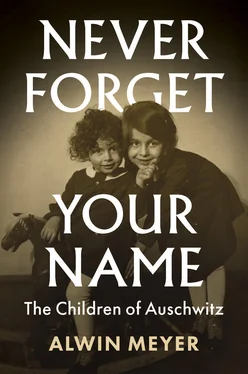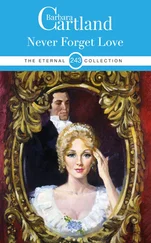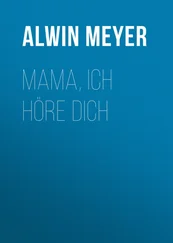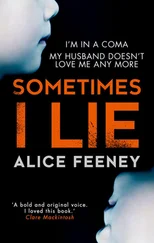The Fried family had to move three times. ‘Ultimately, we lived with two other families in a three-room apartment. We now had one room for four people with almost no room to play.’
Contact with non-Jewish family friends broke off almost completely. But there were still ‘courageous people’ who ‘hid food under their coats and brought it to us’, which was strictly forbidden. When Jews were ordered to wear a yellow star, from mid-September 1939, Dáša began to realize for the first time that ‘we are different, although we look like everyone else’.
‘People we knew’ were among the 5,000 Jewish children, women and men deported in October and November 1941 to the Littmannstadt (Łódź) ghetto. ‘They were only allowed to take a few personal effects and had to leave everything else behind. We didn’t know at the time where they were being taken. But we quaked with fear. What was to become of us?’
While in exile, Franz Werfel, the Jewish writer born in Prague, wrote the poem ‘The City of an Emigrant’s Dreams’:
Yes, I am right, it is the well-known street.
I’ve lived here thirty years without a change …
Is this the street? I’m driven by a strange
Compelling force there with the mass to meet.
A barrier looms … Before I can retreat
My arm is roughly seized: ‘Please show your pass!’
My pass? Where is my pass? In a morass
Of scorn and hate I move with faltering feet.
Can the human soul endure such anxious fear?
Steel scourges that will strike me whistle near.
The last I know upon my knees I’m flung …
And while I’m spat on by an unseen crowd,
‘I have done nothing wrong’, I scream aloud,
‘Except I spoke in your own tongue, my tongue.’ 73
Lydia Holznerová fell sick a few days before the arrival of the German troops:
I got diphtheria on 10 March 1939 and was admitted to hospital in the district capital of Náchod. Even as I child, I already knew that the Nazis were somehow dangerous. And when I woke up early on 15 March 1939, I heard people saying that the German army had entered Náchod. My mother visited me in the hospital that afternoon. I was in an isolation ward and visitors weren’t allowed. We spoke through a closed window. I remember screaming and asking my mother: ‘Are the Germans in Hronov?’ And my mother started to cry.
She was only able to finish Year 4.
But as my father was well known in Hronov, the headmistress of my school helped. There was an unemployed teacher in the town whom she recommended to my father. She gave him the school curriculum. The teacher came to our home and gave me lessons. My father paid him, which was illegal, of course, and risky for us and for the teacher.
Her sister Věra was able to complete her schooling at the Jewish grammar school in Brno. She could not be issued a proper school-leaving certificate, only an ‘ersatz certificate’.
From June 1939, all Jewish assets were secured. German trustees were installed, especially in profitable companies like Emil Holzner’s textile wholesale business. He was no longer allowed to go there.
He purchased a weaving loom and wove fabrics at home. ‘Soon two other families moved in with us. There was very little room left for us. Then the trustee wanted to live in the house. We had to move out. Acquaintances in Hronov took us in. Now we had just one room for four people.’ The family were still relatively fortunate. They had sufficient savings to survive for two years after the business transfer. They were even able to help relatives who had fled to Prague by giving them small or larger amounts of money. Contact with non-Jews in Hronov remained intact.
The woman who had worked as a housekeeper with the Holzners helped where she could, ran errands and brought a few items that made day-to-day living at least a little easier. Other friends hid furniture and clothing for the Holzners, because, after 1939, Jews had to declare their assets. Valuables and securities had to be surrendered. 74A German business friend in Dvůr Králové, also in eastern Bohemia, kept Věra’s trousseau. One of Lydia’s uncles had married a Christian who refused to divorce. ‘Whenever necessary, we called her to take care of things.’
Lydia continued to play with the neighbourhood children, even in the evening, although it was forbidden for Jews to leave the house after 8 p.m. ‘It was possible because our house and the neighbouring houses had gardens in the back. We children climbed over the fence and played together after 8 p.m. The neighbours did not object, although it was risky for them.’
Lydia Holznerová never forgot one day in early 1942:
We were already forced to wear the yellow star. We only had one star. On that spring day, I put on a light coat without the star and went into town. I met my girlfriends there and we were walking around. When I got home, my father was waiting for me at the door. When I opened it, I saw he was holding a stick. He hit me with it. ‘What’s the matter?’ I asked him. ‘Look at yourself! Do I have to have people come and tell me that you’re running around town without a star? You are putting your family and your friends in danger.’
Emil Holzner had had bad experiences with the Gestapo, having spent a week in prison on some unclear charge, and paying a large amount of money to be released. The experience had changed him:
When my father came back, he ordered that all of the hidden objects were to be brought back and that every last item was to be handed in. He didn’t want to keep anything. Although his friends said they would keep the things, he wouldn’t have it. My father never told me what the Gestapo did to him. He was completely drained when he came back.
Yehuda Bacon Yehuda particularly remembers 14 June 1940, the day German troops entered Paris. 75As his parents were no longer allowed to work in Ostrava, they were forced to sublet some of their apartment. Mrs Florian, a tenant, was visited on that day by her son, who was in the German Wehrmacht.
He was drunk, gave us a dirty look and said: ‘You’ll all be eliminated soon like they’re doing in the East. If I wanted to, I would just have to say the word and you’d be kicked out of your home straightaway. But I’m not like that.’ Then he looked at me sympathetically and said: ‘I’m sorry for you. You don’t look particularly Jewish. I’m sorry on your account.’
Yehuda had initially attended a Jewish primary school in the town of his birth. He didn’t go to grammar school, since the Nazi laws prohibited Jews from obtaining secondary education. To secure as wide-ranging an education as possible for the pupils, however, a few additional classes were added on to the primary school. ‘Until 1941/42 the school was semi-official. Later, the classes were completely forbidden and we had “krousky”, teaching circles, that were illegal and took place in private homes with six to eight pupils.’
Around the end of 1941, two ‘halutzim’ (Jewish pioneers for Eretz Israel, the biblical name for the land of Israel) came. They wanted originally to flee to Slovakia and said that all Jews in Prague were sitting with their suitcases packed because they could expect to be rounded up for transport at any moment. ‘They asked us to flee with them. We thought that the atrocities they related were not true. Perhaps we didn’t want to believe them.’ Two of Yehuda’s teachers, Sissi Eisinger and Jakov Wurzel, both 24 years old, came from Brno. ‘And suddenly they were summoned for transport, because the people from Brno were taken away earlier.’
Yehuda can still remember their departure. ‘Jakov Wurzel told us a Hasidic story, that every person has a “nitzotz”, a spark, and that this spark bursts into flame once in every person. He was trying to say, I think, that everyone can show spiritual and moral greatness at some point in their life.’ The pupils were so moved that they cried, ‘with only a slight inkling at the time what the parable meant’.
Читать дальше












